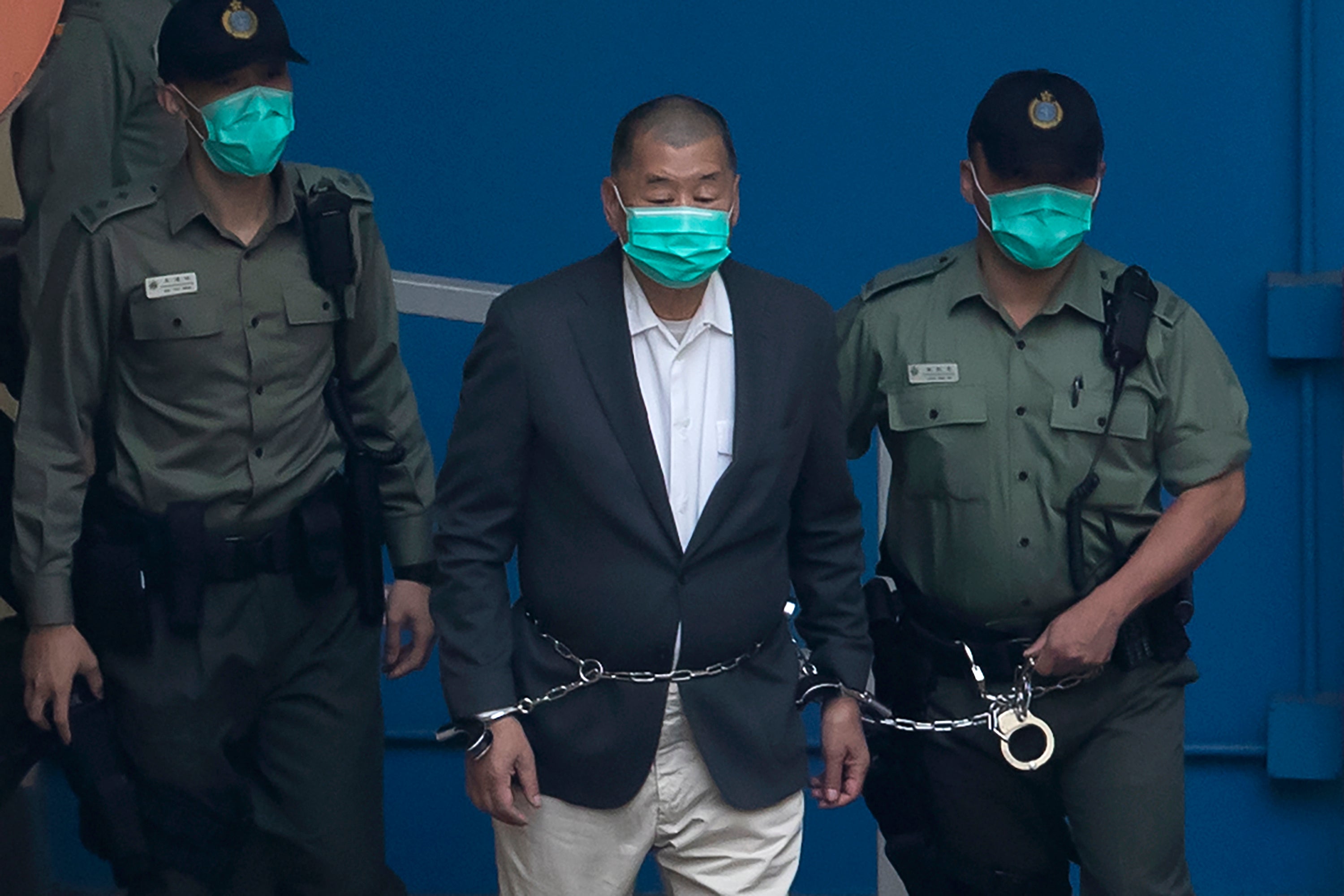Hong Kong says it could criminalise spreading of ’fake news’
Move unlikely to appease those fearing further restrictions on press freedom

Hong Kong could criminalise the spreading of so-called fake news, but only if less punitive approaches have been shown not to work.
The authorities in the partly self-governing Chinese territory have said they hoped regulation could clamp down on “fake news”, but reserved the right to introduce new laws to make it a criminal offence if necessary.
The move will heighten concerns about press freedom in Hong Kong, where a number of media outlets critical of the pro-Beijing government have been pressured or forced to close.
Earlier this week, an Economist journalist had to abandon her job reporting from Hong Kong after her visa was not renewed.
The erosion of press freedom has dramatically accelerated since June 2020 when China passed a new national security law for Hong Kong, which resulted in the arrest of many democracy activists, as well as newspaper editors and journalists.
The outspoken pro-democracy publication Apple Daily was forced shut after its owner Jimmy Lai and key editors were arrested under the draconian security law.
In an interview on Wednesday with the public broadcaster RTHK, the city’s second highest ranking official, Chief Secretary John Lee Ka-chiu, said he hoped alternative methods could be used instead to crack down on so-called fake news.
“There are two ways of [addressing fake news]. The first is through regulation. The second is through criminalisation,” Mr Lee said. “I personally think that a regulatory approach should come first.”
The official said the Hong Kong government had been studying different approaches taken overseas to restricting the spread of misinformation online, and said ideally the media would introduce tougher self-regulation rather than the authorities needing to intervene.
“Some countries will ask to remove information considered to be false or causing damage to society but give the opportunities to defend," he said. "There are also practices to require a statement from the publisher such as the message has not been verified or checked.
“If the industry has self-discipline and introduce regulations as well as a management or punishment mechanism, will the government still need to introduce laws? We can study further.”
Hong Kong’s chief executive Carrie Lam first suggested her government would seek to legislate against “spreading inaccurate information, misinformation, hatred and lies on social media” in May.
In a survey of foreign correspondents working in Hong Kong, 76 per cent of journalists said they were “very concerned” about the prospects of a fake news law.
More than eight in ten also said the working environment for reporters had changed following the national security law’s imposition last year, with sources less willing to talk about sensitive issues and rampant self-censorship in many outlets afraid to cross the regime’s “red lines”.
Half of the journalists surveyed by the Foreign Correspondents Club said they were considering leaving Hong Kong because of declining press freedom.
Ever since imposing the highly controversial national security law on Hong Kong, Beijing has significantly tightened its grip on the previously semi-autonomous territory.
Most pro-democracy activists and politicians have either fled into exile or been detained, while expressing dissent or criticism against the Chinese Communist regime has become much riskier.
Join our commenting forum
Join thought-provoking conversations, follow other Independent readers and see their replies
Comments
Bookmark popover
Removed from bookmarks